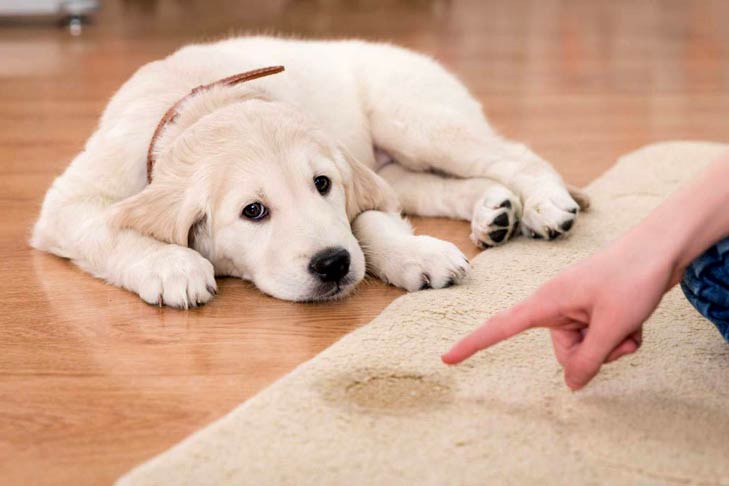The modern world can be a strange and confusing place for a dog, and just like people, they aren’t born with an innate understanding of how to navigate the world around them. You love your furry friend, so you naturally want to make sure that he can live happily and comfortably with other dogs and people. Thus, it’s important to give your dog the training that he deserves to make his life more safe, comfortable, and enjoyable while improving his interactions with the people and pets around him. If you want your dog to thrive, then check out this quick guide on what to look out for when considering quality Phoenix dog obedience training.

When Might a Dog Need Training?
Training can help a dog feel safer and happier while also preventing negative or dangerous behaviors. Every dog is different, and two dogs with a similar issue may require vastly different approaches, thus necessitating the aid of an experienced professional. To help you better identify concerning behaviors, the following list details some of the most common signs that your dog could benefit from training.
Fears and Phobias
Dogs often have fears of noises, objects, shapes, and other things that can seriously affect their quality of life. Exposure to a phobia may manifest in aggression, cowering, or intense focus. All of these behaviors can be severely disruptive, and your pup will feel much better after she has been gently guided to manage her fears by a trained professional.
Anxiety
It is very common for dogs to experience separation anxiety when they go to work, travel, or even just hop over to the local grocery store. Because of their anxiety, they may wine, urinate, and tear things up while you are gone. You only have so many pairs of shoes and couch cushions to spare before it becomes an issue, and your dog will be much happier if you help him overcome his anxiety as soon as possible.
Aggression
Aggression is very common among all breeds and circumstances. This may manifest in growling, barking, staring, chasing, and other menacing behaviors that are intended to cause fear. Many dogs are very territorial towards other dogs, and they may have issues with strangers or children. It is important to rectify aggressive behaviors before a stranger, child, or another animal is hurt.
Potty Training
Proper potty training is vital if you want to live in harmony with your little buddy. After all, nobody wants furniture, floors, and carpets covered in urine and feces. Puppies, adult dogs, and senior dogs may all experience problems with urinating inside or at inopportune moments, but these problems are fixable. The root causes of potty problems can vary widely, so it’s important to take the right approach and find an effective solution.
Dashing, Running and Pulling
Does your dog constantly try to run away? Does he refuse to listen when you call him over? Does it feel like he’s trying to pull your shoulder out of its socket when you take him for a walk? If you answered yes to any of these questions, then you need to contact a behaviorist immediately. Otherwise, your dog may run away for good or jump into traffic.
Biting
Biting isn’t always necessarily aggressive, but it is problematic. Dogs sometimes carelessly bite around food or when they’re excited. While they may not mean any harm, a bite can seriously injure a person, and it could put your dog’s life and freedom in jeopardy.
Obsessive-Compulsive Disorder
If your dog constantly chases her tail, often licks certain objects or body parts, or consistently exhibits some other abnormal or debilitating behavior, then he may struggle with OCD or a related disorder. Such disorders can be extremely difficult to treat in humans, and they’re extra difficult to manage in pets. Therefore, your pup needs someone with a deep understanding of canine psychology to help him manage his disorder.
Cognitive Dysfunction
Some dogs have a harder time understanding things than others. Teaching a neurotypical dog can be difficult enough, but a dog with cognitive problems can come with a host of difficult challenges. Only someone who has a lot of experience with such animals will have the patience, skills, and strategies to help the dog adapt.
Other Issues and Behaviors
Sometimes, it’s hard to put a finger on what is going on with your dog. A dog that doesn’t exhibit any of the above behaviors may still benefit from training. If your dog’s behavior is disruptive, debilitating, or concerning in some way, then you should introduce her to a skilled behaviorist to uncover the underlying causes and develop an effective solution.
Why Choose a Behaviorist?
A genuine dog behaviorist will either have a master’s degree or a doctorate, meaning that they have studied canine behavior for a very long time. With their in-depth knowledge and experience, they can address your dog’s problems much more effectively than a regular trainer alone. A behaviorist will work with you and your dog’s veterinarian to find the most effective, humane, and actionable solutions for your dog’s problematic behaviors.
In-Home Training Is the Key to Success
The best Phoenix dog obedience training occurs in the home. While other options exist, they are not as effective, nor are they nearly as convenient. Your dog likely spends most of her time at home, and she is very attached to your property. As a result, she can learn more easily and feel more comfortable in such a familiar environment. An in-home visit from a certified behaviorist won’t only save you from a troublesome commute, but it can also save time and enhance the impact of your pup’s rehabilitation.